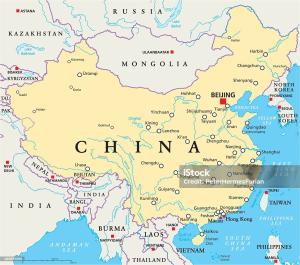
I just watched a Zoom presentation of Christianity in China by an authoritative foreign affairs organization in the US that requested no attribution regarding its comments. A main speaker was being interviewed who is a US citizen who worked permanently in China for three decades beginning in the early 1980s. The following were some of this person’s remarks without being exact quotes:
The Chinese government recognizes five different religions: Buddhism, Daoism, Islam, Catholic Christianity, and Protestant Christianity. The government is more tolerant toward Buddhism, Daoism, and folk religion than it is of Islam and Christianity.
It is difficult to estimate how many Christians there are in China since there continues to be registered churches and underground churches that are deemed “illegal.” Even though Christianity remains a minor religion in China–perhaps between 50 and 100 million Christians out of 1.4 billion people–it grew significantly during the 1980s, 1990s, and the first decade of this century. It was because the Communist Party in China became more open to religion, even claiming China has “freedom of religion.” Thus, there are quite a few church buildings throughout most of China.
Nevertheless, China continues its requirement of churches to be registered with the state under what it calls its “Three Self Patriot movement.” Churches that refuse to be registered with the state have still been regarded as “illegal.” They have always been identified as “underground churches” or “house churches.” There are some minor differences between these two movements. The government’s policy is to force a break up of large, registered churches into smaller churches to enable better control.
China acknowledged its “freedom of religion” in a document made public in 1982 called “Document 19.” It has never been widely reported in international media. Document 19 admits concerning China’s previous repression and persecution of religion, that “this was a mistake.” Yet the Communist Party in China has always, since its takeover of the country in 1949, advocated atheism. Document 19 resulted in a lax attitude by China’s governing authorities toward religion. Due to this, the “underground” and “house” church movement in China enjoyed a notable growth period. But it was Protestant Christianity that experienced this growth, with no growth in Catholic Christianity.
The underground church movement in China refuses state registration because it wants to avoid any government control, which may include the government choosing church pastors. The Roman Catholic Church has an ongoing dispute about this since the government chooses its bishops. China seeks to control religion partly to prevent the emergence of radical, religious cults that can have a negative impact of society.
Even though the underground church movement in China is illegal, many such churches have had websites. If the government blocks them, Chinese people are known for being so technologically savvy about digital, online communications that these churches maneuver around this and thereby often avoid government detection.
China is officially known as The Peoples’ Republic of China, which is controlled by the Chinese Communist Party. Since 2018 under President Xi Jing Ping’s governance, there has been somewhat of a crackdown on civil society both politically and religiously. President Xi believes strongly in a unified China in which his administration is more controlling of society. Thus, when has repressed Christianity in recent years, it is only part of the Communist Party’s general control of society. Yet China still claims to have “freedom of religion,” which it does to certain extent.
A Q&A period now ensued during this one hour, online presentation as follows:
Q. Why has China’s underground church movement had such growth?
A. Its lack of government control is more appealing to people.
Q. Has there been any theological changes among Christians in China?
A. Christian are “stuck” in old theology. They still use their Chinese Union Bible version created over a century ago. The government actually is producing a new translation of the Bible. “There is a shortage of Christian theologians in China.” Since South Korea is very predominantly Christian, it has had a profound impact on China.
Q. China now suffers from a low birth rate. Throughout the world, religious people usually have more children and the rest of society. Has the government discussed this?
A. [The interviewee admitted to a lack of information to answer this.] State schools teach atheism. As Chinese people have become more affluent, it has enabled Christian Chinese families to leave China merely for the reason of wanting their children to educated without atheism and perhaps with Christian teaching.
Q. Are there many women pastors of churches in China?
A. Perhaps half of all pastors in registered churches in China are female. This is because the wages are so low that few men desire the pastorate. But the underground churches have few female pastors.













